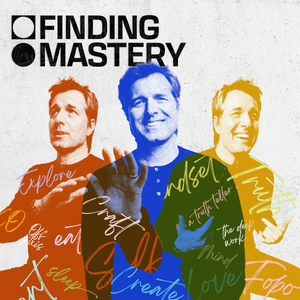
Kinshasas Robocops soon in Berlin? - Digital Africa (en)
05/10/17 • 22 min
- Elke Sasse
- Geraldine de Bastion
- Mugethi Gitau
Berlin has more than 2000 traffic lights – but no Robocops: Robocops are 3-meter high robots, regulating traffic in Kinshasa. And hopefully one Robocop is soon coming to Berlin – as part of our project on digital innovations in Africa.
“Digital Africa” is a multi-platform project about digital innovations including a documentary film for ARTE TV, a web clip series, a webpage - and the building of a Robocop in Berlin. The documentary, shot in a road movie style, will be presenting the African innovation scene. The web series will bring them to Germany - by animation artist Ebele Okoye. And one project, Kinshasas robot, will hopefully come to Berlin in real. There is also a GIG hosted webpage for information.
It’s an ongoing project, which will be launched in 2018. To be able to present the most inspiring digital projects, we are still looking for input and would like to meet with people interested in sharing their innovative projects in Africa with us after this short session.
- Elke Sasse
- Geraldine de Bastion
- Mugethi Gitau
Berlin has more than 2000 traffic lights – but no Robocops: Robocops are 3-meter high robots, regulating traffic in Kinshasa. And hopefully one Robocop is soon coming to Berlin – as part of our project on digital innovations in Africa.
“Digital Africa” is a multi-platform project about digital innovations including a documentary film for ARTE TV, a web clip series, a webpage - and the building of a Robocop in Berlin. The documentary, shot in a road movie style, will be presenting the African innovation scene. The web series will bring them to Germany - by animation artist Ebele Okoye. And one project, Kinshasas robot, will hopefully come to Berlin in real. There is also a GIG hosted webpage for information.
It’s an ongoing project, which will be launched in 2018. To be able to present the most inspiring digital projects, we are still looking for input and would like to meet with people interested in sharing their innovative projects in Africa with us after this short session.
Previous Episode

TX/RX (Transmit/Receive) (en)
With live interventions as his basis, Julian will read signal domains - from WiFi to GSM and analog radio - as techno-political territories, opening up questions of ownership, mobility and control in a world where technical forms of activism and decentralised infrastructure are central to positive change. Projects made by him (and made with others) that relate to these tensions will also be introduced, presented within the frame of his practice as a Critical Engineer.
- Julian Oliver
What can we, as civilians, do with radio? What can and can't we listen to, and why? What are our rights of broadcast? If the air we breathe is considered public, why not that which passes through it?
Doubling as both intervention and lecture, Julian will lead the audience through an unbridled, hands-on exploration of radio infrastructure on which we depend, from GSM to GPS and WiFi. In doing so, he will read signal domains as highly patrolled techno-political territories, opening up questions of ownership, surveillance and control with a view to activism and decentralised, publicly-owned infrastructure.
Next Episode

Conflict Zones, VR Documentary Storytelling and Confronting Censorship
How can VR be used to combat censorship in oppressive regimes and what are the challenges of VR documentary storytelling in the future
- Sam Wolson
Director Sam Wolson will explore some of the challenges in VR documentary storytelling in this talk, drawing from firsthand experience shooting We Who Remain in a Sudanese war zone. How can VR be used to combat censorship and oppressive regimes? How do you create a narrative in a medium whose language is not yet established? How do you get VR films out to the world?
We Who Remain, which premiered this year at the South By Southwest festival in Austin, Texas, is the first character-driven immersive documentary shot in an active conflict zone. The 15-minute film weaves together the lives of four people – a student, a rebel soldier, a journalist, and a mother – persevering in war in the Nuba Mountains of Sudan. The film is a co-production between Nuba Reports, a pioneering journalism initiative that produces films and news from the front lines of Sudan’s conflict zones, and Emblematic Group, one of the world's foremost creators of immersive virtual, augmented, and mixed reality, in collaboration with The New York Times, AJ+ and ARTE.
If you like this episode you’ll love
Episode Comments
Generate a badge
Get a badge for your website that links back to this episode
<a href="https://goodpods.com/podcasts/republica-17-arts-and-culture-3210/kinshasas-robocops-soon-in-berlin-digital-africa-en-158990"> <img src="https://storage.googleapis.com/goodpods-images-bucket/badges/generic-badge-1.svg" alt="listen to kinshasas robocops soon in berlin? - digital africa (en) on goodpods" style="width: 225px" /> </a>
Copy




